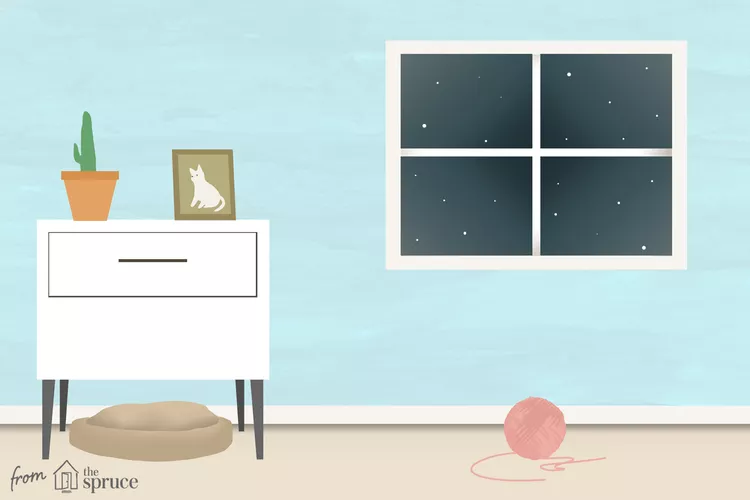What to Do When Your Cat Dies at Home

When facing the imminent death of a terminally ill beloved cat, or when a feline companion has suddenly died, the disposal of the remains is a hard topic to contemplate. However, planning ahead for the inevitable is important and helps avoid making hasty emotional decisions that you may regret later.
What Are the Disposal Options?
Many methods of animal remains disposal are governed by individual state or local laws, so part of planning in advance includes investigating laws in your location. For example, some counties prohibit the burial of pets in backyards or the scattering of pet cremains. A local animal shelter or veterinarian will be able to help navigate the legal landscape.
Cremation
Cremation can be arranged through your veterinarian, pet cremation companies, or possibly through a local animal shelter. There are two methods:
- Communal Cremation: The remains of the cat are cremated along with other deceased pets and disposed of according to law.
- Individual Cremation: The remains of a cat are cremated alone, and the remains are returned to the cat's owner for final disposition. The charge varies, as do the costs of permanent memorial urns for pet cremains, and is typically more expensive than communal cremation. Some people choose to save the remains of their pets to be buried with them when they die. Others opt to bury or scatter the ashes or incorporate them into landscaping.
Whole Body Burial
When it comes to burying your pet, you may have the option of burying your cat at home or in a pet cemetery.
- At Home: This method is used regularly by grieving pet owners. It may bring a feeling of closure by having a private service and keeping the remains of the deceased cat nearby. There are a few disadvantages to this method. If you move houses, you will leave the remains behind. Pet owners who live in an apartment or house with a shared backyard may find burying at home to be inappropriate. Finally, this is prohibited by many state and local laws. Owners who bury their deceased cats at home may be in danger of fines or legal repercussions.
- In a Pet Cemetery: Pet cemeteries exist as a final resting place only for animals. If you have difficulty locating one in your area, your veterinarian will likely be able to refer you or help arrange for burial services. Check that the pet cemetery has set aside funds for the perpetual maintenance of the burial grounds and that deed restrictions are in place to guarantee the grounds will always be used for pet burial.
Taxidermy
While not for everyone, some people may find immense comfort in having a permanent lifelike visual reminder of a cat they dearly loved in their home. The price for this service usually starts at around $1,000 and increases based on several factors. A veterinarian can help refer pet owners to professional taxidermists.
Commonly Asked Questions
No matter how prepared, the loss of a pet can still come as a shock, and handling the practical aspects afterward can be emotionally exhausting. Considering a few common questions can help prepare owners for the stressful time that surrounds a cat's death.
Will someone come to my home and take away the animal's body?
A mobile veterinary clinic may be able to come to your home. Animal control services will also pick up deceased pets for a fee. Your pet's passing will not be considered an emergency, so at night, weekends, or holidays, they may not arrive until the next business day.
If there is a delay, what do I do with my cat's body?
Like humans, upon death, cats may expel fecal matter or urine. This is not a signal that they passed in pain; when they die, the internal organs and muscles loosen, releasing waste. It's fine to clean up your pet a bit after it has passed. Depending on how long you have to wait, you can wrap the body carefully in towels and place it in an appropriately sized box.
If you have to wait more than two hours, or in hot weather, wrap the remains thoroughly in plastic wrap, place it in a large plastic bag, tie it closed tightly, and place it in an ice chest with ice packed all around. These details are painful to think about, and even more painful to carry out. Remember that your cat's essence is no longer in its body. The careful, respectful handling of your beloved cat's remains will serve as a testament to your love.
The Days Ahead
When you have handled all the final details, the enormity of your loss may hit you immediately, or you may find yourself feeling numb and unable to cry. Grieving any loss is a long process, and you may never feel fully recovered. Through understanding and recognizing the progressive stages of grief, the day will come when you will be able to look back on your life together with love and smiles instead of tears.